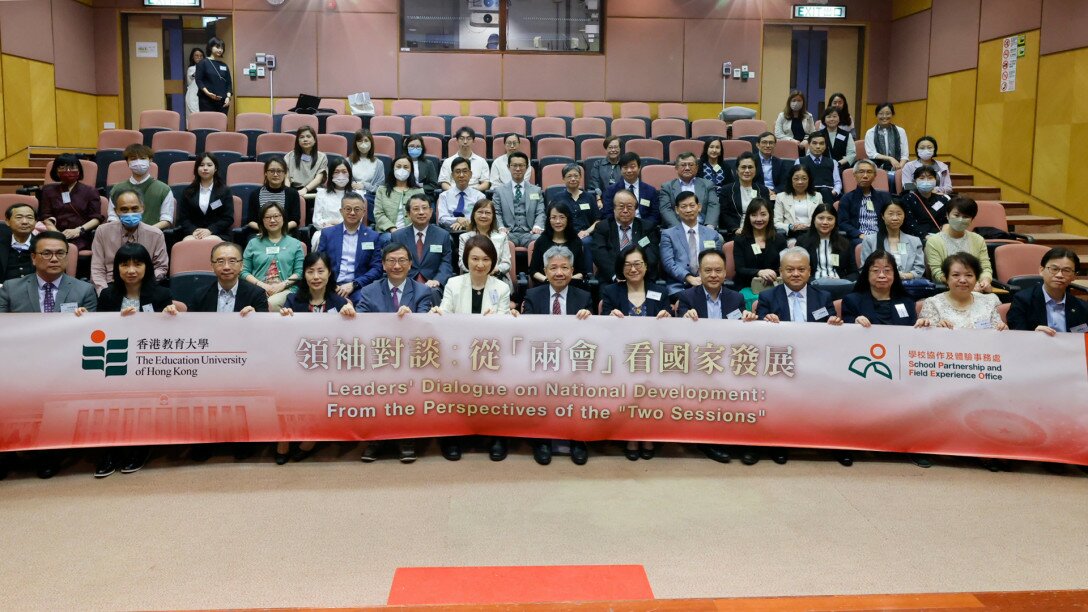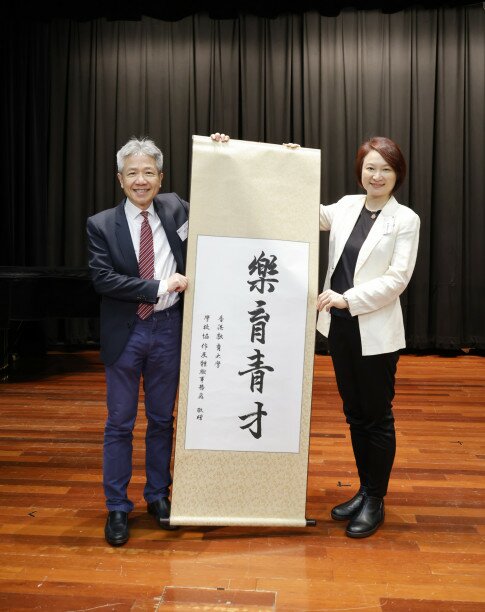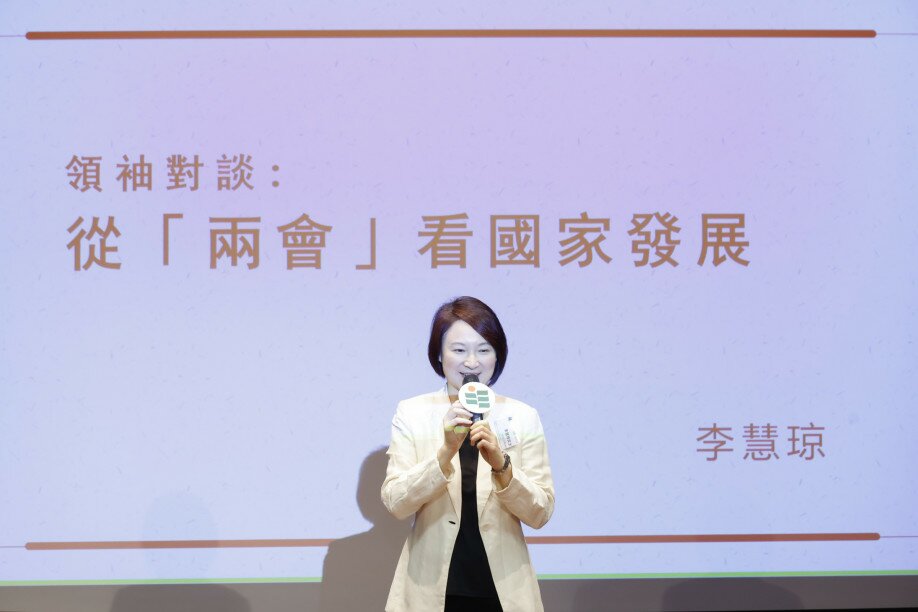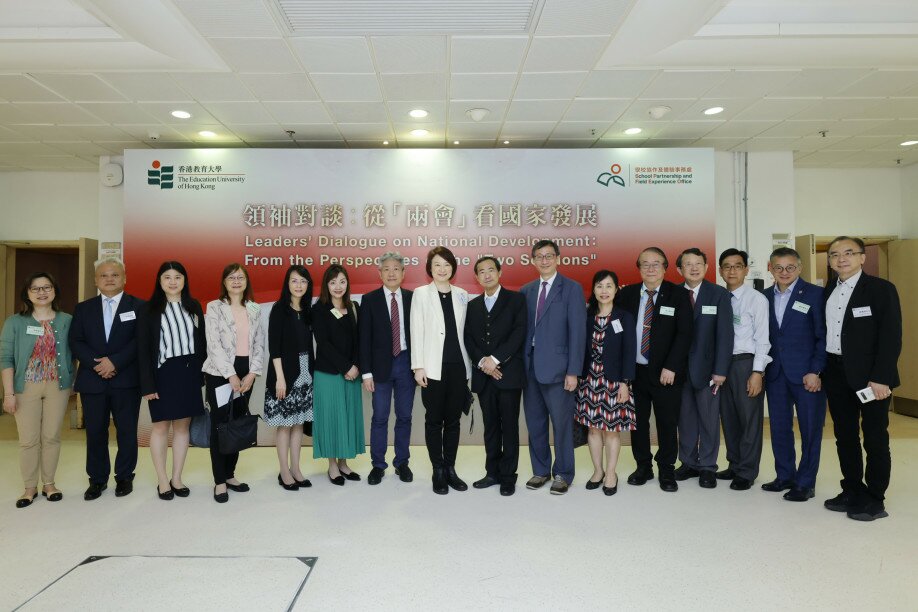Leaders Dialogue on National Development from the Perspective of ‘Two Sessions’
The School Partnership and Field Experience Office (SPFEO) of The Education University of Hong Kong (EdUHK) organised a Leaders Dialogue session on 18 April 2023, focusing on national development from the perspective of the ‘two sessions’, which refer to the annual plenary sessions of the country’s top legislature and political advisory body.
The event featured the Hon Starry Lee Wai-king, Member of the Standing Committee of the 14th National People’s Congress (NPC) and Hong Kong Deputy to the NPC; and Professor John Lee Chi-Kin, Member of the National Committee of the 14th Chinese People’s Political Consultative Conference (CPPCC) and Chair Professor of Curriculum and Instruction at EdUHK. The two speakers shared their observations and insights regarding the ‘two sessions’ with over 200 EdUHK staff and students, representatives from school head associations, and primary and secondary school principals and teachers, who attended the event in hybrid mode.
In his welcoming remarks, EdUHK President Professor Stephen Cheung Yan-leung said, “In line with our commitment to nurturing professional educators, we hope our faculty and students can have a better understanding of the ‘two sessions’ and the latest developments of the country through the event. This will help lay a solid foundation for their personal and professional growth to become educators with a strong sense of mission and responsibility, as well as a global perspective.”
The Hon Starry Lee started with an introduction of the work of the NPC and the CPPCC, explaining the national development and government plans and proposals. She pointed out that the Hong Kong delegates hold 36 seats in the NPC, which proportionate to population, far exceeds those of other provinces and regions. Similarly, there are 196 local members serving on the CPPCC’s 14th National Committee, accounting for approximately 10% of the total number of CPPCC members (2,169). This is the best testimony to the great importance and care the country has accorded to Hong Kong, she stressed.
Professor John Lee spoke about the main functions of the CPPCC, covering ‘political consultation’, ‘democratic supervision’ and ‘participation in the administration and discussion of state affairs’. He added that he was honoured to have been appointed as a CPPCC Member, and would play a bridging role by sharing and gathering views on political, economic, cultural and social issues, and putting forward proposals. His first submission to the CPPCC was related to the promotion of special education in the mainland and Hong Kong and its expanding benefits.
There was a Q&A session chaired by EdUHK Associate Vice President (Academic Affairs) Professor May Cheng May-hung. She invited the two speakers to elaborate on the role that Hong Kong could play in the development of the Greater Bay Area. The Hon Starry Lee responded that Hong Kong enjoyed unique edges in various areas of professional services, including healthcare, law and accounting. She said that as an international financial centre, Hong Kong could help enterprises ‘go global’ and attract investment and talent from overseas. Professor John Lee suggested that Hong Kong should leverage its ‘one country, two systems’ status by facilitating cultural exchange between East and West. This means that we should integrate Western culture while upholding our virtuous Chinese culture, and that a broad vision should be taken for the country’s development. He stressed that the flourishing of Hong Kong’s basic and higher education and excellence in innovation, technology and knowledge transfer would help enhance Hong Kong’s educational interconnectivity with the country in the future.








